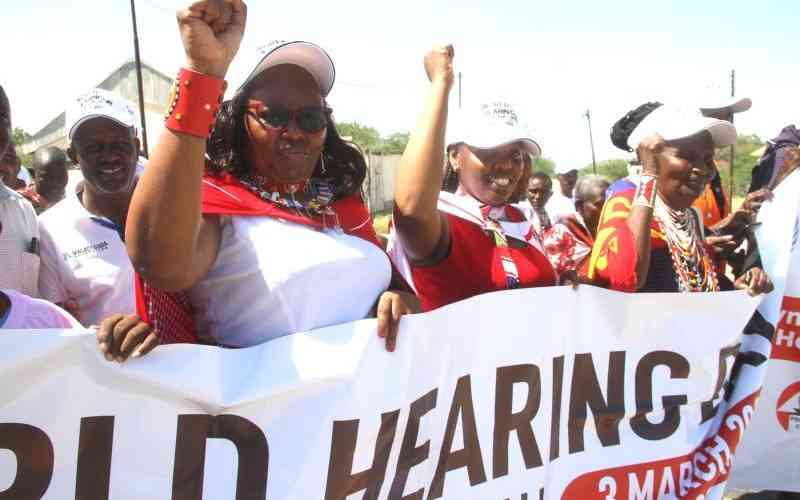×
The Standard e-Paper
Fearless, Trusted News

Ear and hearing-related challenges remain rampant among the Maasai community, this emerged today during celebrations to mark World Hearing Day in Kajiado County.
Ignorance, misinformation, myths and traditional barriers among other beliefs were cited as some of the factors hindering members of the community from seeking medical attention.